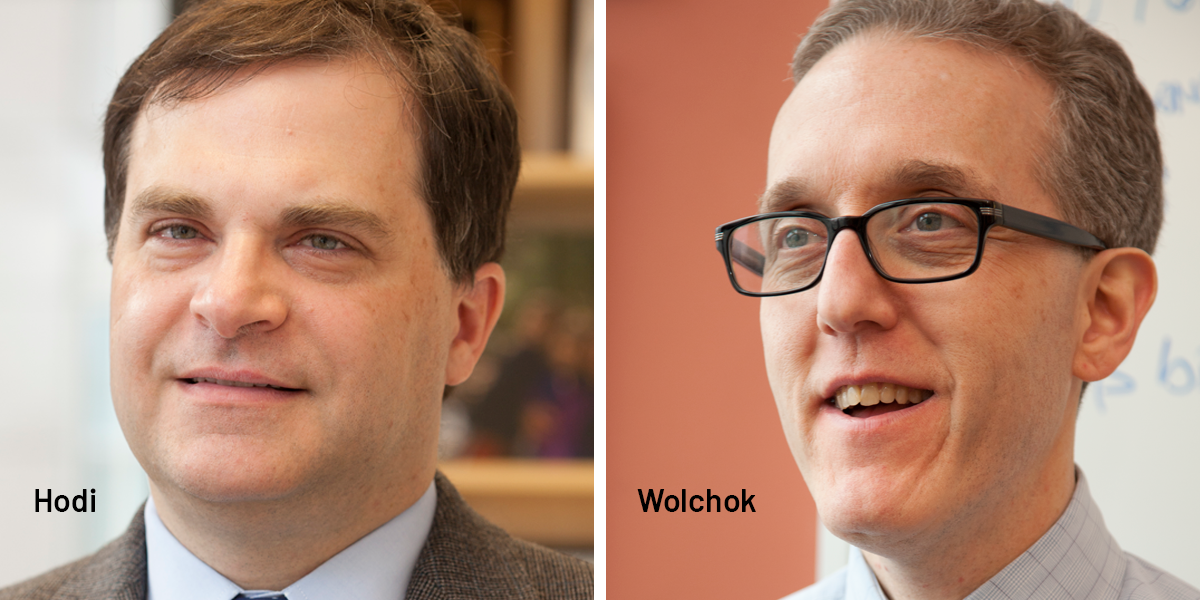Better together
Jedd Wolchok of Ludwig MSK and Stephen Hodi of Ludwig Harvard are among the pioneers of evaluating immunotherapies in combination for a variety of cancer types. In 2015, they caused a stir in the medical community with their publication of the results of a multicenter, Phase 3 trial they led.
The evaluation of mechanistically distinct immunotherapies in combination for a variety of cancer types is among the most intriguing trends in cancer research. Jedd Wolchok of Ludwig MSK and Stephen Hodi of Ludwig Harvard are among the pioneers of the strategy, testing the effects of combination checkpoint blockade in patients with advanced melanoma. In 2015, they caused a bit of a stir in the medical community with their publication of the results of a multicenter, Phase 3 trial they led.
The study, which was funded by Bristol-Myers Squibb showed that a combination of the CTLA-4 inhibitor ipilimumab and PD-1 inhibitor nivolumab induces more frequent responses and considerably longer progression-free survival in patients with advanced melanoma than the administration of either of them alone. Published in the New England Journal of Medicine, these results prompted the US Food and Drug Administration to approve the combination for patients with advanced, inoperable melanoma.
Wolchok, Hodi and their colleagues found that for ipilimumab alone, the median overall progression-free survival (PFS)—the length of time following treatment before the cancer resumes its growth—was 2.9 months. Patients treated with nivolumab alone had a median PFS of 6.9 months, while the combination of the two resulted in a PFS of 11.5 months. The team also reported that 19% of patients treated with ipilimumab alone and 44% treated with nivolumab had an objective response to each therapy, measured as a significant reduction in tumor size. The response rate for the combination therapy was 58%.
CTLA-4 is a protein found on T cells, which can destroy cancerous and diseased cells. When switched on, it tamps down T cell activity. PD-1, also found on the surface of T cells, is activated by a protein known as PD-L1, an event that prompts T cells to self-destruct. Both proteins prevent excessive autoimmunity and the destruction of healthy tissues following immune responses to infections. Many tumor cells, however, hijack this protective mechanism and express PD-L1 to thwart T cell attack.
Since its FDA approval, the combination therapy has been welcomed by oncologists, who need every edge they can get against this remarkably aggressive malignancy.
“It has definitely caught on,” says Wolchok. “Here at MSK it’s our go-to option for people who we feel have the medical reserve for some of the side effects that may occur with the treatment.” Those side effects, he points out, can be managed in many patients.
Wolchok, Hodi and their colleagues continue to collect data on the overall survival of patients who participated in the Phase 3 trial.
